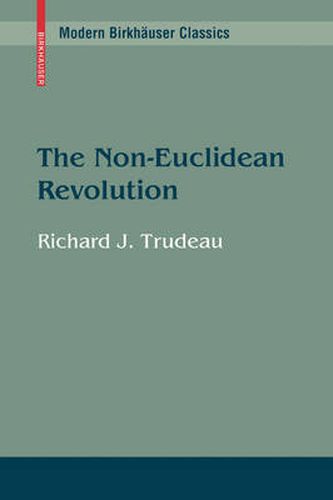Readings Newsletter
Become a Readings Member to make your shopping experience even easier.
Sign in or sign up for free!
You’re not far away from qualifying for FREE standard shipping within Australia
You’ve qualified for FREE standard shipping within Australia
The cart is loading…






This title is printed to order. This book may have been self-published. If so, we cannot guarantee the quality of the content. In the main most books will have gone through the editing process however some may not. We therefore suggest that you be aware of this before ordering this book. If in doubt check either the author or publisher’s details as we are unable to accept any returns unless they are faulty. Please contact us if you have any questions.
Richard Trudeau confronts the fundamental question of truth and its representation through mathematical models in The Non-Euclidean Revolution. First, the author analyzes geometry in its historical and philosophical setting; second, he examines a revolution every bit as significant as the Copernican revolution in astronomy and the Darwinian revolution in biology; third, on the most speculative level, he questions the possibility of absolute knowledge of the world. A portion of the book won the Polya Prize, a distinguished award from the Mathematical Association of America.
$9.00 standard shipping within Australia
FREE standard shipping within Australia for orders over $100.00
Express & International shipping calculated at checkout
This title is printed to order. This book may have been self-published. If so, we cannot guarantee the quality of the content. In the main most books will have gone through the editing process however some may not. We therefore suggest that you be aware of this before ordering this book. If in doubt check either the author or publisher’s details as we are unable to accept any returns unless they are faulty. Please contact us if you have any questions.
Richard Trudeau confronts the fundamental question of truth and its representation through mathematical models in The Non-Euclidean Revolution. First, the author analyzes geometry in its historical and philosophical setting; second, he examines a revolution every bit as significant as the Copernican revolution in astronomy and the Darwinian revolution in biology; third, on the most speculative level, he questions the possibility of absolute knowledge of the world. A portion of the book won the Polya Prize, a distinguished award from the Mathematical Association of America.